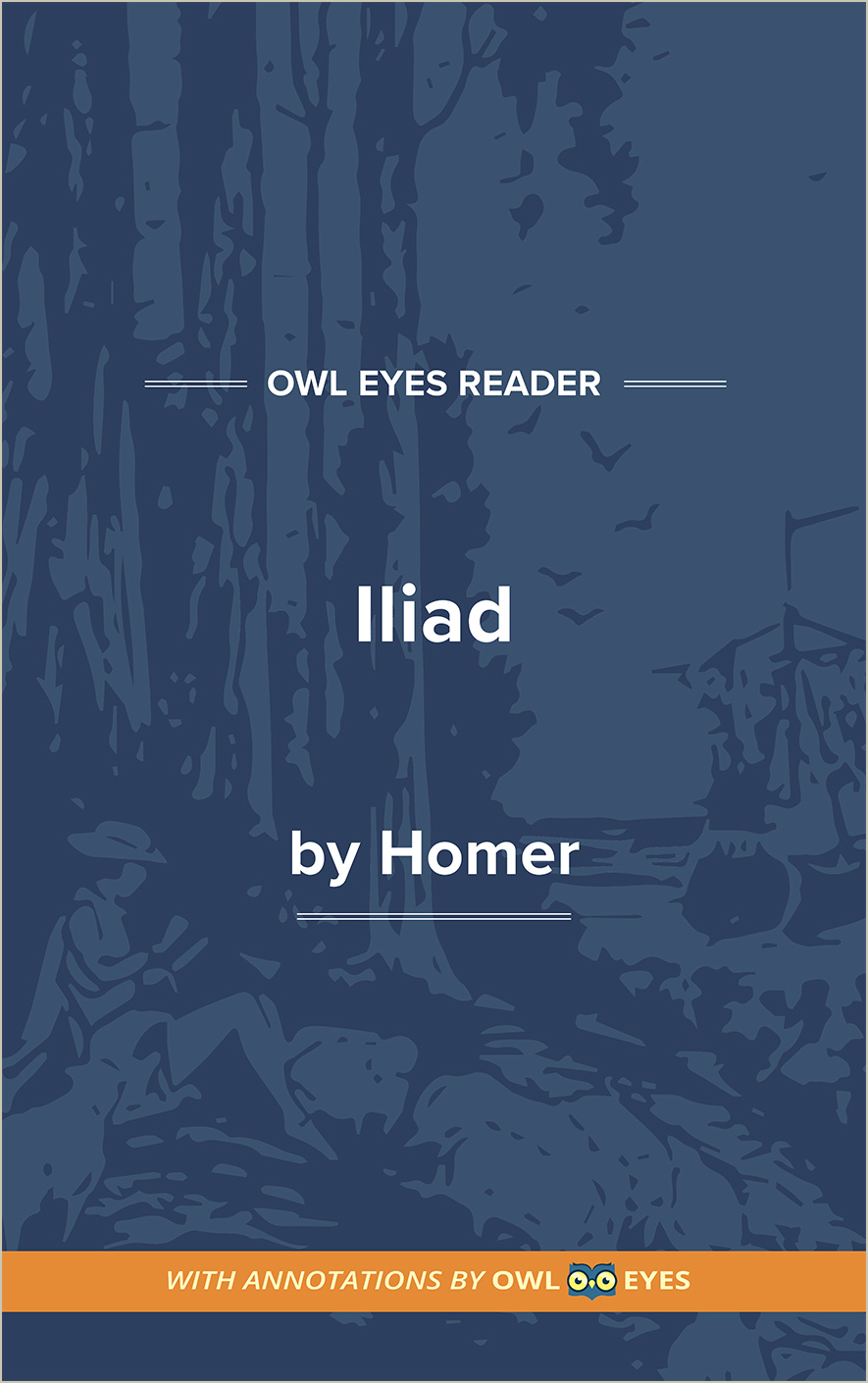Study Guide
Analysis Pages
Summary
Though the myths describe the Trojan War as a thirty-year cycle of preparations, conflict, and homecomings, the chronological period that the Iliad covers is actually quite restricted, not more than ninety days in the final year of fighting. Despite its focus on the quarrel of only two of its warriors, both of them Greek, Homer nevertheless conveys the full range of human emotions that prevails in war, even as he provides a vivid portrait of Mycenaean culture. The result is that his Iliad, bold and all-encompassing though it is, remains essentially quite limited; that is undoubtedly one of the most distinctive features of Homer’s epic. Homer makes the limits of his intentions clear from the outset. His invocation to Caliope, the Muse of epic, specifies that he will sing of Achilles’ anger.
Obviously, the anger of Achilles operates on several levels and has far-reaching consequences. On the personal level, it refers to the quarrel between Achilles and Agamemnon for possession of Briseis, a young woman originally given to Achilles by the Achaeans as his prize of honor. Agamemnon, too, had a captive mistress, Chryseis; yet, she was the daughter of a priest of Apollo named Chryses. When Agamemnon haughtily refuses to return Chryseis to her father, Chryses invokes Apollo himself, who sends a plague upon the Achaeans. Once he realizes that the army will be decimated by disease if he takes no action, Agamemnon returns Chryseis to her father, though he simultaneously demands that Achilles surrender Briseis to him as her replacement. Agamemnon fears that the Achaeans will consider him weak if he does not enforce his will upon Achilles in this way, yet the reader perceives only Agamemnon’s pettiness and insecurity.
Achilles reviles Agamemnon in the agora (assembly) of leaders, yet he surrenders Briseis to him without active resistance. More significantly, Achilles announces his intentions to withdraw his Myrmidons from battle and return with them to Phthia, their home in southern Thessaly. These dramatic announcements made, Achilles throws down the skeptron (staff), which gives him the uncontested right to speak, and dashes from the agora. This extraordinary behavior at the least implies weakness and apparently cowardice. It seems to complement the pettiness of Agamemnon, but there are clearly other reasons for Achilles’ actions.
Thetis, the goddess-mother of Achilles, subsequently appears to comfort her son, who is all too aware of how the Achaeans could interpret his sudden withdrawal and threat to return home. She reviews the alternatives that moira (fate) has assigned to him: either to slay Hector, the first of the Trojan warriors, and to be killed at Troy soon thereafter or to live a long and undistinguished life in Phthia, dying there of old age. Achilles well knows these alternatives. His withdrawal, which extends from Iliad 1 to Iliad 22, represents an essential pause to consider these alternatives at a crucial juncture of his life. Worth noting is the fact that Achilles undertakes no preparations to return home; also, although the war initially goes badly for the Achaeans, to the extent that Agamemnon offers Achilles an impressive series of gifts (including restoration of Briseis) for his return, Achilles’ prolonged absence makes relatively little difference overall.
Agamemnon’s embassy to secure Achilles’ return contains elements of magnanimity and self-interest. Significantly, Agamemnon does not personally entreat Achilles. Instead, he enlists the cunning Odysseus and Diomedes (who would together devise the stratagem of the wooden horse), as well as Achilles’ old tutor Phoenix. The appeal thus emerges through a combination of clever argument and sage advice, and the collection of gifts (listed in catalog form) is calculated both to impress the Achaeans with Agamemnon’s megalapsyché (great-heartedness, generosity), as much as it is to force Achilles to make his decision. That is one of several places in which the...
(The entire page is 1,662 words.)
Owl Eyes subscribers get unlimited access to our expert annotations, analyses, and study guides on your favorite texts. Master the classics for less than $5/month!

